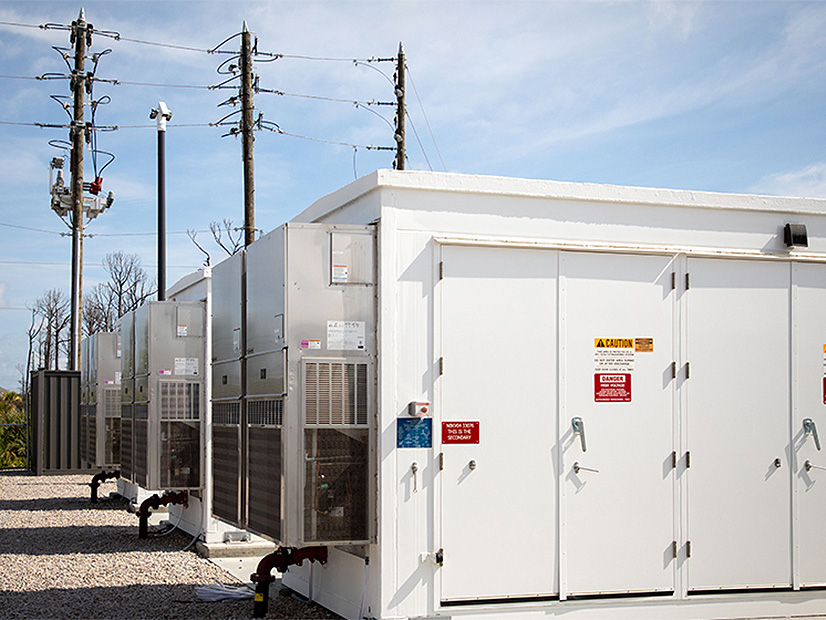Duke Energy Progress (DEP) and the North Carolina Eastern Municipal Power Agency (NCEMPA) filed a settlement with FERC on Thursday that would end a dispute over the latter using batteries to shave its peak demand (ER22-682).
Duke serves the power agency under a power purchase agreement in which the utility buys energy, capacity and reserves to meet the municipals’ demand. It charged the agency for capacity based on a 12-coincident-peak method.
NCEMPA members started shaving those peaks using behind-the-meter battery storage systems, which led to a dispute at FERC over their impact on Duke’s ability to recover its costs.
Duke believed that NCEMPA could figure out when its members’ demands were going to hit one of the 12 coincident peaks, thus dispatching batteries to avoid the capacity charges, so it filed changes to its agreement to adjust how the agency was charged for capacity to account for the batteries.
FERC in an order early last year found that Duke had failed to show its proposal was just and reasonable and set the matter for hearing and settlement judge procedures. (See FERC Orders Negotiations in Duke-Muni Contract Dispute.)
The filed settlement would resettle transactions between the two starting on Jan. 1, 2023, expressly saying no refunds would be issued for 2022. NCEMPA would be able to keep its batteries and other “energy injection devices,” but they cannot exceed 1.75% of its total capacity plus 25 MW. Any batteries or storage devices that NCEMPA uses during peak demand periods can be made subject to that cap.
The two also agreed to a new supplemental capacity charge arrangement for certain interruptible loads whose consumption might not be apparent at the monthly system peak used for calculating capacity charges.
FERC trial staff supported the settlement, saying it would solve the issues in the case in a fair and reasonable way that is consistent with the public interest. The settlement would allow NCEMPA and its members to manage their power use through energy-storage devices while addressing DEP’s concerns about their impact on its revenues, they said.
The uncontested settlement would resolve all the issues FERC set for hearing and promote consistency and predictability through 2027 with a new PPA. Duke and NCEMPA asked FERC to approve the settlement without modification or conditions.
EV Charging Pilot
Duke Energy on Monday announced it was launching a pilot program in its North Carolina utilities to offer customers a flat rate for 800 kWh/month of electricity to charge their cars.
The utility is working with Ford, General Motors and BMW to launch its “EV Complete Home Charging Plan.” Customers will pay just $19.99/month in Duke Energy Carolinas and $24.99/month in DEP for 800 kWh, which the utility said is about twice as much as the average consumer would use for their cars.
The pilot will use software in the cars themselves to track monthly demand, avoiding the expense of installing a separate meter.
“The average EV owner is already saving about $1,000 per year on fuel costs compared to a traditional vehicle; a predictable monthly subscription charge on top of that is going to ensure predictable savings when charging,” Kendal Bowman, president of Duke’s utility operations in North Carolina, said in a statement. “Beyond cost savings, EV charging at home tends to be convenient because drivers can leave the house with a fully-charged vehicle and lessen the number of trips to public charging stations.”




